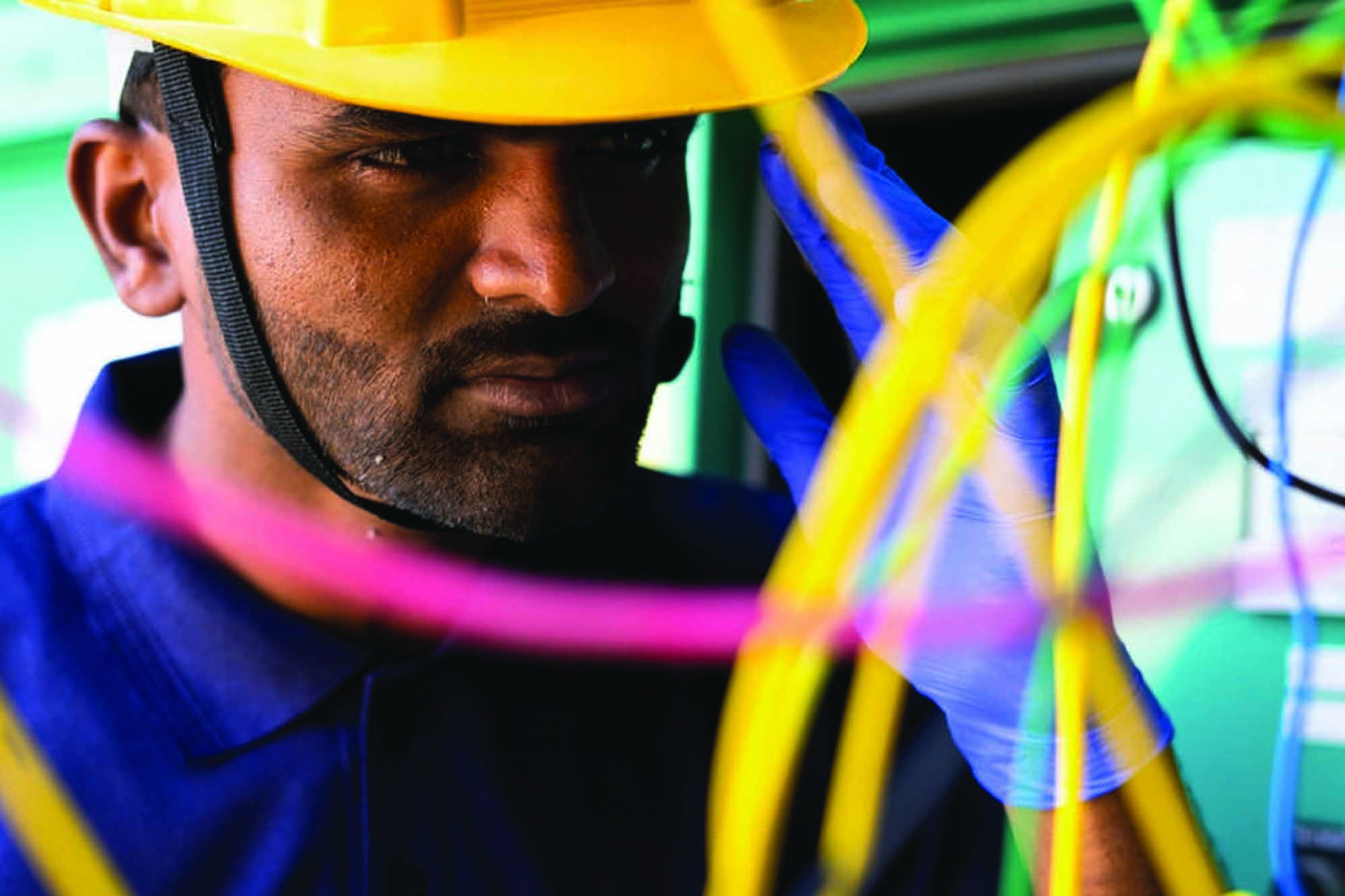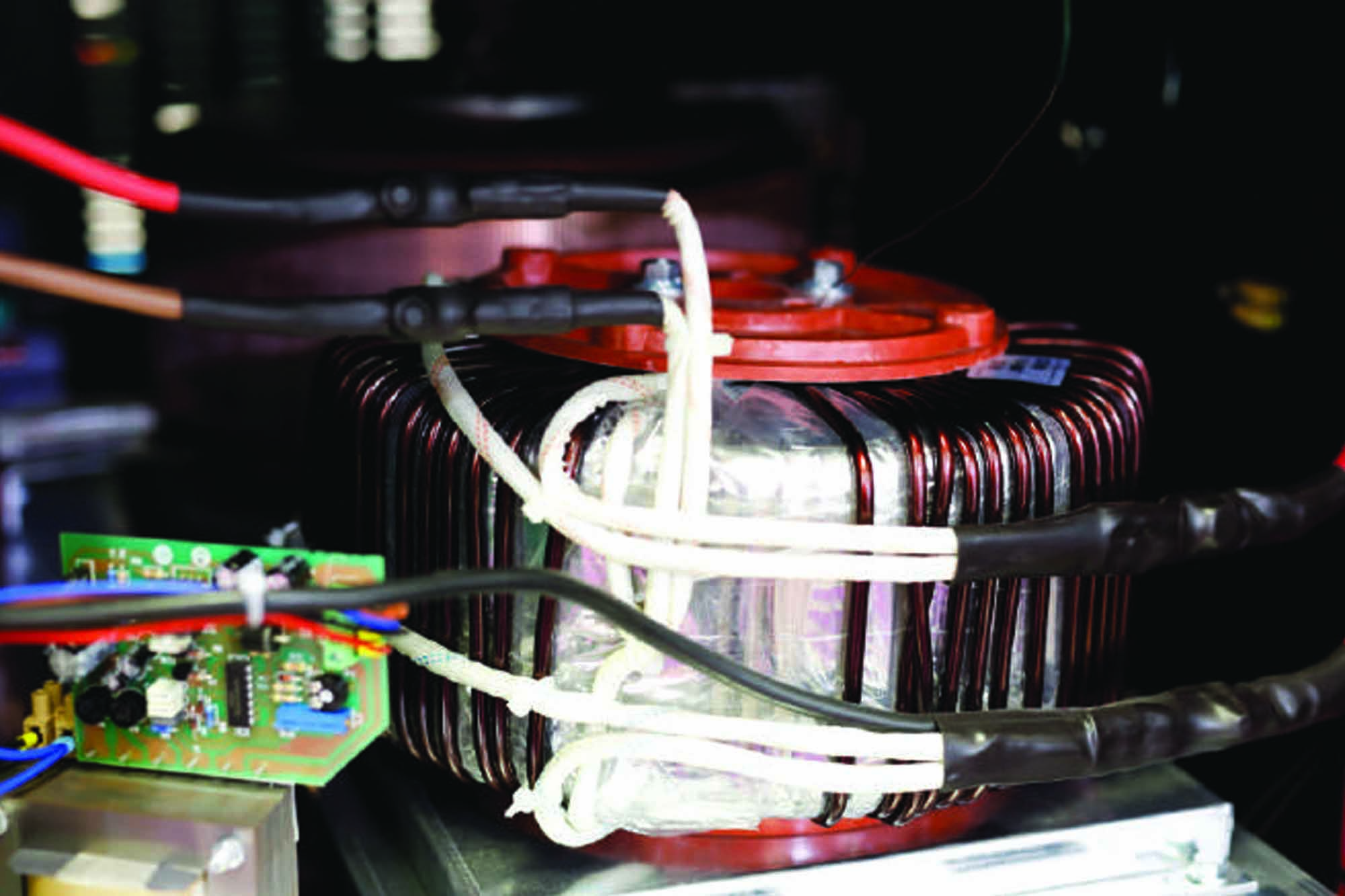Navigating RE surge for a sustainable future
By EPR Magazine Editorial January 23, 2024 12:08 pm IST
By EPR Magazine Editorial January 23, 2024 12:08 pm IST

India’s wire and cable businesses are experiencing significant transformation, influenced by the shift to renewable energy and initiatives such as the Revamped Distribution Sector Scheme (RDSS) and the Deen Dayal Upadhyaya Gram Jyoti Yojana (DDUGJY).
The Indian wire and cable industry is undergoing a transformative phase shaped by government schemes like the Revamped Distribution Sector Scheme (RDSS) and Deen Dayal Upadhyaya Gram Jyoti Yojana (DDUGJY): the stringent product quality adherence and the impact of the renewable energy transition present challenges and opportunities. The industry leaders here analyse the changing trends in the sector.
Government Schemes (RDSS and DDUGJY)
In India, the Revamped Distribution Sector Scheme (RDSS) and Deen Dayal Upadhyaya Gram Jyoti Yojana (DDUGJY) are pivotal in shaping the wire and cable industry. These government initiatives are crucial in addressing the nation’s electrification needs, particularly in rural and remote areas. Implementing these schemes has substantially increased the demand for reliable, high-quality electrical infrastructure.
Gautam Seth, Joint MD of HPL Electric & Power, says that HPL Electric and Power recognises the impact of these schemes and is dedicated to supporting the electrification goals set by the government. He says, “By aligning our offerings with the evolving needs of these schemes, we aim to contribute significantly to the successful implementation of electrification initiatives across the country.” He further says, “Our focus on reliability, efficiency, and technological advancements positions us as a key player in supporting the objectives outlined by RDSS and DDUGJY.”
Vinay Rathi, Director of Gloster Cables, analyses that government schemes like RDSS and DDUGJY impact India’s wire and cable industry by fostering increased demand for infrastructure development. Initiatives focusing on rural electrification increased the requirement for cables used in power transmission and distribution networks. He says, “These schemes often introduce or reinforce quality standards, necessitating compliance for manufacturers participating in government projects. Incentives for local manufacturing promote domestic industry growth, while technological upgradation requirements drive innovation.” Vinay adds, “The wire and cable sector plays a crucial role in supporting and fulfilling the objectives of these government programmes aimed at enhancing rural infrastructure and electrification.”
Neharika Wangnoo, from WAA Cables, opines that government schemes like RDSS and DDUGJY are transforming the Indian wire and cable industry in profound ways. These initiatives drive infrastructure development by focusing on rural electrification and digitalisation, necessitating robust electrical networks. She says, “This, in turn, fuels a surge in demand for high-quality wires and cables, prompting industry adaptation to meet stringent standards. The emphasis on digitalisation encourages technological advancements, fostering innovation in smart grids, digital security, and communication networks.”
Neharika further says, “Implementing these schemes leads to job creation, benefiting the wire and cable sector and contributing to overall economic growth. Compliance with specific standards ensures the production of safe and reliable products, elevating the quality of electrical infrastructure in rural areas.”
Product Quality and Compliance (BIS, RoHS, and REACH)
The wires and cables industry addresses counterfeit and substandard concerns while upholding compliance with BIS, RoHS, and REACH through rigorous quality management systems, encompassing thorough testing of raw materials and finished products. Regular supplier audits and qualification processes ensure that suppliers adhere to established standards.
Vinay says traceability systems track materials throughout the supply chain, verifying their origin and compliance. Certifications from relevant bodies, such as ISI for BIS compliance and compliance testing, are integral in ensuring product adherence to required standards. He adds, “Advanced authentication technologies like holograms and RFID tags help distinguish genuine products from counterfeits. Collaborating closely with regulatory bodies like BIS, the industry stays abreast of evolving standards.” He further says, “Consumer education initiatives highlight the importance of purchasing from reputable manufacturers, emphasising the risks associated with substandard or counterfeit products.”
Gautam says, “HPL Electric and Power Ltd is focused on product quality and compliance with global standards. Ensuring the highest safety standards, environmental responsibility, and performance in the wire and cable industry is imperative. To address the prevalent issues of counterfeiting and substandard products, we adhere strictly to the guidelines set by the Bureau of Indian Standards (BIS), Restriction of Hazardous Substances (RoHS), and Registration, Evaluation, Authorisation, and Restriction of Chemicals (REACH).”
He adds, “By adhering to these global standards, we not only safeguard the interests of our customers but also contribute to the overall integrity of the wire and cable industry. Our commitment to BIS ensures that our products meet the stringent quality benchmarks established for electrical goods.”
Neharika says, “Our wire products are meticulously designed to combat counterfeit and substandard issues, prioritising compliance with BIS, RoHS, and REACH standards. Through stringent quality control measures, traceability, and documentation, we ensure that raw materials, production processes, and finished products meet specified standards.” She adds, “Adhering to BIS guidelines, our wire development prioritises quality and safety. We are environmentally responsible, complying with RoHS standards and ensuring our wires are free from hazardous substances for a safer, sustainable environment. Our commitment extends to REACH regulations, guaranteeing responsible chemical use throughout the product life cycle.”

Impact of Renewable Energy Transition
India’s shift to renewable energy significantly boosts the demand for wires and cables. With the increasing adoption of solar power, there is a need for extensive wiring in solar projects and rooftop installations. The transition towards renewable energy in India has significantly impacted the demand for wires and cables.
Neharika opines that wind energy projects contribute to demand, requiring specialised cables for turbines and substations. Integrating smart grids and energy storage systems further propels the need for advanced wiring solutions. She says, “The surge in electric vehicle adoption is fuelling demand for charging infrastructure that relies on specialised wiring. Government initiatives and policies supporting renewable energy drive investments, fostering the demand for cables.”
“Grid expansion and upgradation to accommodate cleaner energy sources amplify the need for various cable types. Industrial and residential solar installations contribute to the demand for wiring systems, connecting solar panels to the grid,” she adds.
Gautam says, “HPL Electric and Power Ltd actively provides solutions that cater to the unique requirements of the renewable energy sector. Our products are designed to meet the challenges of integrating renewable energy sources into the national grid. This involves developing cables and wires capable of efficiently transmitting power over varying distances and supporting the diverse needs of solar, wind, and other renewable energy projects.”
Vinay analyses that wires and cables are pivotal in connecting solar panels, wind turbines, and other renewable energy systems to the power grid. This heightened demand is evident in the increased need for specialised cables designed to withstand environmental conditions in these energy generation setups. He says, “The integration of smart grid technologies and energy storage systems further amplifies the requirement for advanced, high-quality cables.”“The evolving landscape towards cleaner energy sources not only spurs innovation in cable technology but also offers substantial growth opportunities for the wires and cables industry in supporting India’s renewable energy ambitions,” he adds.
Challenges and Opportunities in Energy Transition
The wires and cables industry faces challenges and opportunities amid the ongoing energy transition. On the challenging side, the industry needs to adapt to increasingly stringent environmental regulations, ensuring compliance with quality standards. The transition to renewable energy sources poses challenges related to integrating intermittent power generation, requiring specialised cables for efficient energy transmission.
Gautam opines that the energy transition presents challenges and opportunities for the wires and cables industry. A notable challenge is adapting to evolving technologies, addressing sustainability concerns, and meeting the increasing demand for advanced and resilient infrastructure. He says, “These challenges also bring forth opportunities for innovation, collaboration, and developing cutting-edge solutions. As the industry undergoes this transformative phase, HPL Electric and Power Ltd is committed to navigating the challenges and capitalising on the opportunities it presents.”
Neharika emphasises the pivotal role of technological adaptation in addressing challenges and capitalising on opportunities in the energy transition. She says that the evolution of technology to meet the demands of emerging renewable energy technologies and smart grids is crucial.
She says, “The industry faces formidable challenges. Adherence to eco-friendly practices, driven by stringent environmental regulations, may impact manufacturing processes and costs. Global disruptions in the supply chain can affect raw material availability, influencing production and distribution. Intense competition and cost pressures pose profitability challenges while maintaining quality and safety standards.” She says that uncertainty in energy policy and market dynamics during the transition period may influence industry investment and planning decisions. Despite these challenges, there are significant opportunities.
“The growing demand for wires and cables in solar and wind energy projects offers promise. Developing smart grids and energy storage opens new cable markets, supporting efficient energy distribution. The rise of electric vehicles has created opportunities, with specialised cables needed for charging infrastructure. Also, embracing technological innovation has allowed the industry to produce high-performance, energy-efficient cables meeting evolving technical requirements,” Neharika adds.
Vinay says that the need for sustainable manufacturing practices and materials poses challenges in the production process.
Conversely, the energy transition presents opportunities for the wires and cables sector. He says, “The surge in renewable energy projects has necessitated a growing demand for high-quality cables to connect solar, wind, and other clean energy sources to the grid. Developing smart grids and energy storage systems opens new avenues for innovative cable technologies.” “As electric vehicles become more prevalent, there is an opportunity for the industry to provide charging infrastructure, driving demand for specialised cables,” he adds.
The overall scenario of the wires and cables industry reflects that it plays a pivotal role in facilitating a smooth transition towards a more sustainable energy landscape.
Quotes
Vinay Rathi, Director Gloster Cables
“The wire and cable industry plays a crucial role in supporting and fulfilling the objectives of government programmes like RDSS and DDUGJY to enhance rural infrastructure and electrification.”
Neharika Wangnoo, WAA Cables
“Our wire products are meticulously designed to combat counterfeit and substandard issues, prioritising compliance with BIS, RoHS, and REACH standards.”
Gautam Seth, Joint MD HPL Electric & Power
“The energy transition challenges also bring forth opportunities for innovation, collaboration, and the development of cutting-edge solutions.”
We use cookies to personalize your experience. By continuing to visit this website you agree to our Terms & Conditions, Privacy Policy and Cookie Policy.